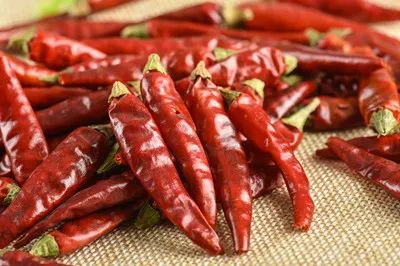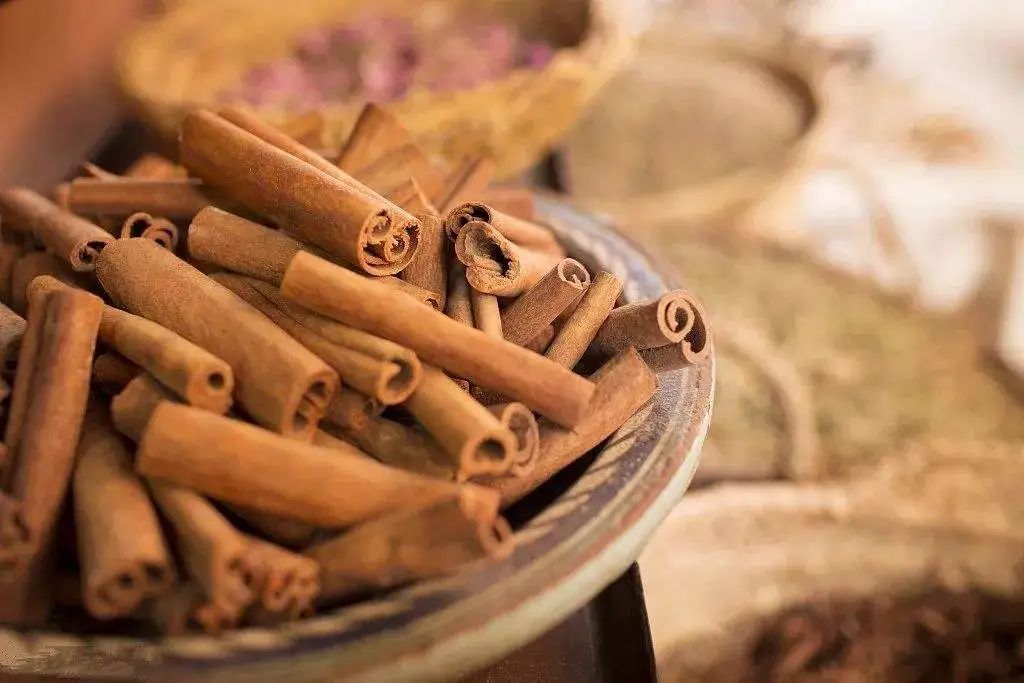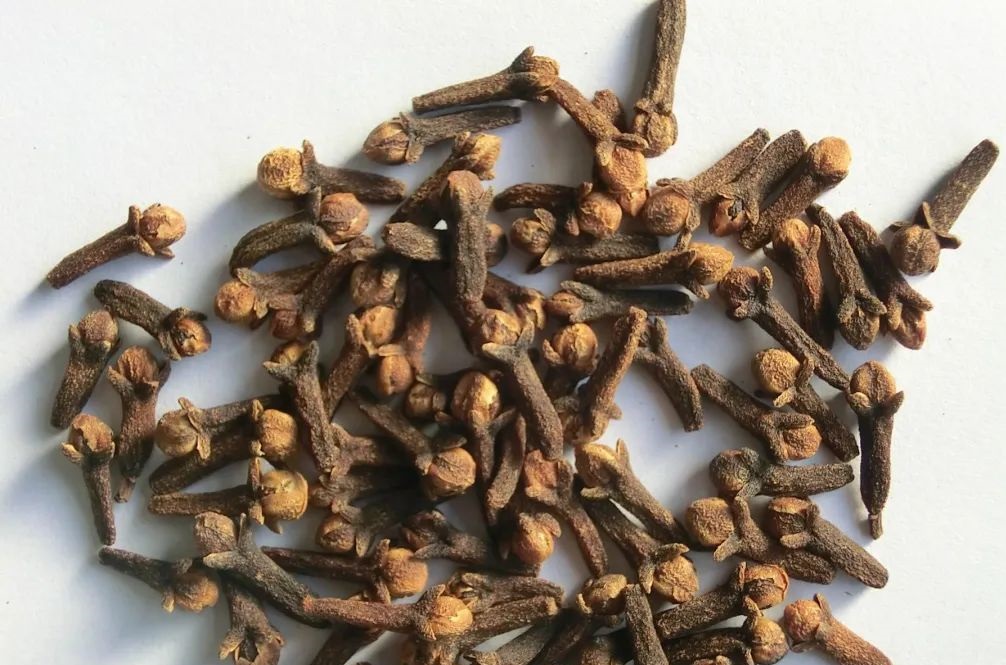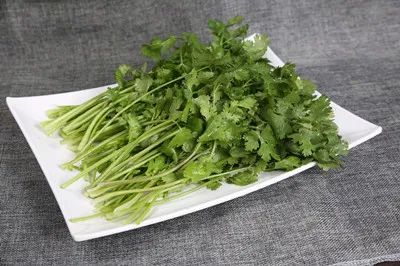TCM Guide to Using Spices Effectively
TCM Guide to Using Spices Effectively
In daily life, spices are often used to enhance the aroma of food. However, they are also excellent tools for promoting health. When used appropriately, these spices can detoxify food, boost appetite, dispel cold and dampness, and warm the spleen and stomach.
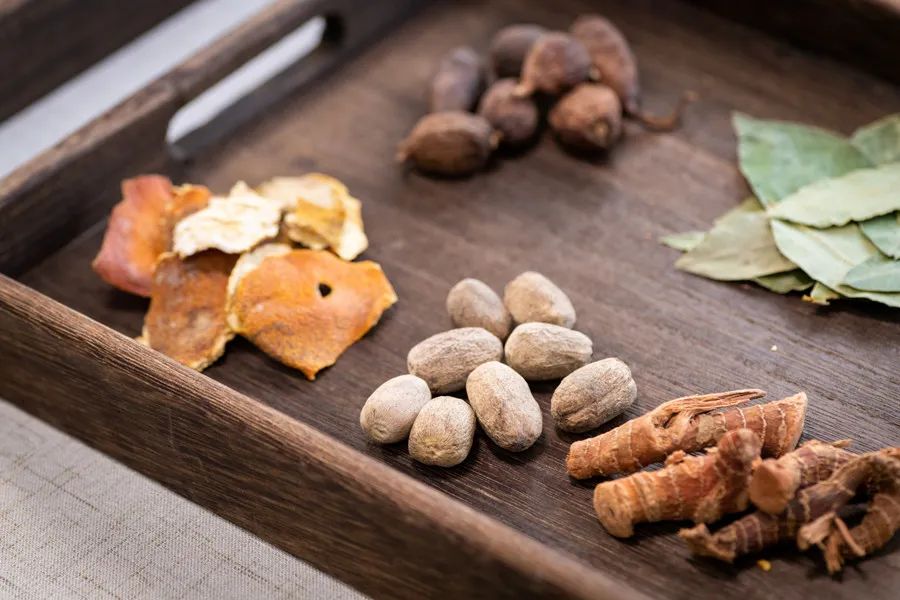
Scallions – Dispel Cold, Antibacterial, Lower Blood Lipids
Scallions have the functions of dispersing cold, promoting yang energy, and inducing sweating, making them useful for treating wind-cold colds.
Modern Research:
Scallions have demonstrated properties such as fever reduction, phlegm removal, digestion improvement, antibacterial, antiviral effects, and reducing blood lipids, blood pressure, and blood sugar.
Ginger – Dispel Cold, Detoxify Seafood
Ginger is known for its ability to dispel cold, warm the middle, stop vomiting, reduce phlegm, relieve cough, and detoxify fish and crab poisoning.
Applications:
Wind-Cold and Headaches: Ginger tea after exposure to cold or dampness enhances circulation and drives out cold.
Cough Relief: Extract fresh ginger juice, dilute it with warm water (1:1 ratio), and rub the mixture on the back for about 10 minutes. This is effective for wind-cold-induced coughs.
Motion Sickness Prevention: Eating ginger or applying it to the Neiguan acupoint significantly reduces motion sickness.
Cold-Induced Colds: Ginger and brown sugar boiled together make a classic remedy for warming the body and alleviating colds.
Indigestion: Boil ginger with radish or cook it inside pork tripe to relieve indigestion and spleen deficiency.
Garlic – Anti-inflammatory, Antiviral
Garlic is beneficial for detoxifying, reducing swelling, killing parasites, and relieving diarrhea. It is used for conditions like boils, scabies, whooping cough, diarrhea, and dysentery.
Modern Research:
Garlic is recognized for its potent antibacterial, anti-inflammatory, and antiviral properties, making it effective for disease prevention and health maintenance.
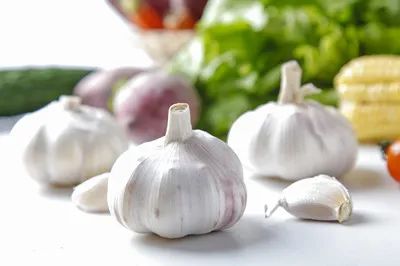
Sichuan Pepper – Warm the Middle, Relieve Pain
Known as the "king of spices," Sichuan pepper is praised for its aromatic and spleen-strengthening properties. It warms the middle, dispels cold, eliminates dampness, and relieves pain.
Applications:
Acne: Sichuan pepper water applied to the face effectively reduces acne.
Toothache: Chewing Sichuan pepper can relieve toothaches.
Frostbite: Soak hands in Sichuan pepper and ginger decoction to promote circulation and alleviate frostbite.
Menstrual Pain: Roast Sichuan pepper with salt and apply it to the abdomen to relieve cold-induced menstrual pain.
Joint Pain: Crush 50g of Sichuan pepper, 10 slices of fresh ginger, and 6 scallion stalks. Place the mixture in a cloth bag, apply a hot water bag on top, and use as a warm compress for joint pain relief.
Note: People with yin deficiency or pregnant women should avoid Sichuan pepper.
Chili Peppers – Dispel Wind-Dampness, Boost Appetite
Chili peppers warm the middle, dispel cold, and are beneficial for those with cold sensitivity, stomach pain, or poor appetite.
Modern Research:
Capsaicin, a compound in chili peppers, increases gastric juice secretion, improves appetite, aids digestion, and acts as an antioxidant, reducing cancer risk.
Applications:
Indigestion: Shred cilantro and green chili peppers for a refreshing salad that aids digestion.
Rheumatoid Arthritis: Heat chili peppers with salt and fennel, then use as a warm compress to relieve joint pain.
Cinnamon – Strengthen Yang, Warm Meridians
Cinnamon boosts yang energy, warms the meridians, and relieves pain. It is used for conditions like impotence, cold-induced menstrual pain, cold abdominal pain, and kidney deficiency-related asthma.
Cardamom – Warm the Middle, Stop Vomiting
Cardamom has the effects of resolving dampness, warming the middle, stopping vomiting, and stimulating appetite. It is particularly useful for poor appetite, bloating, and nausea caused by damp-cold stagnation.
Note: Cardamom should not be consumed in large amounts or for extended periods, as it can deplete qi and damage yin.
Tsaoko (Black Cardamom) – Dry Dampness, Warm the Middle
Tsaoko is effective in drying dampness, warming the middle, and treating malarial conditions and phlegm accumulation.
Caution: Avoid if you have qi deficiency, blood deficiency, or no signs of cold-dampness.
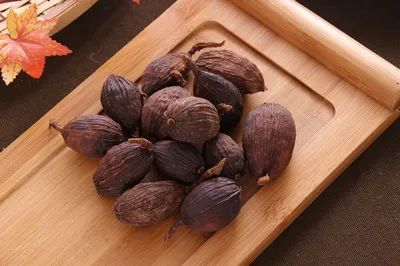
Clove – Tonify the Kidneys and Support Yang
Clove is valued in traditional Chinese medicine for its ability to warm the middle, direct rebellious qi downward, and tonify the kidneys to support yang. It is used for symptoms like hiccups and vomiting caused by spleen and stomach cold, poor appetite, cold abdominal pain, and kidney deficiency-induced impotence.
Note: Clove should not be used alongside Turmeric (Yu Jin). If turmeric is part of a prescription, avoid using clove-flavored dishes during treatment.
Star Anise – Warm Yang, Dispel Cold, Regulate Qi, and Relieve Pain
A staple in the preparation of cold dishes and braised or stewed recipes, star anise has a strong aroma and warming properties. It dispels cold, regulates qi, and relieves pain, making it suitable for treating cold hernia pain, kidney deficiency back pain, stomach cold with vomiting, and cold abdominal pain.
Application:
Boosting Immunity: Soaking feet in a star anise and mugwort decoction can enhance immunity and improve resistance to illness.
Black Pepper – Warm the Middle, Dispel Cold, and Reduce Phlegm
Black pepper, with its pungent and hot nature, is attributed to the stomach and large intestine meridians. It excels at warming the middle, dispelling cold, regulating qi, and reducing phlegm.
Classical Reference:
The Ming Dynasty physician Miao Xiyong wrote in Ben Cao Jing Shu:
"Black pepper is of robust yang energy. It warms the middle, dispels phlegm, harmonizes organs affected by cold, and resolves symptoms such as vomiting, cold abdominal pain, and food stagnation due to cold. It also neutralizes toxins from fish and meat."
Cilantro – Promote Sweating, Relieve Rashes, Aid Digestion
Cilantro, known for its pungent and warm properties, enters the lung and spleen meridians. It promotes sweating, facilitates the eruption of rashes, and aids digestion.
Applications:
Cold Relief: Drinking cilantro and scallion tea can help alleviate cold symptoms by promoting sweating.
Eye Protection: Regular consumption supports retinal health and alleviates eye fatigue, helping to prevent eye diseases.
Skin Soothing: Washing the skin with cilantro water relieves itching and detoxifies.
Dried Tangerine Peel – Regulate Qi, Improve Digestion, Reduce Dampness
Dried tangerine peel, with its aromatic and slightly bitter taste, helps regulate qi, improve digestion, and reduce dampness.
Application:
Reduce Greasiness: Adding dried tangerine peel to soups, such as bone broth, reduces greasiness and aids digestion.
Proper Use of Scallions, Ginger, Garlic, and Pepper
Meat Dishes: Add More Sichuan Pepper
Sichuan pepper has a fragrant aroma that stimulates saliva secretion, boosts appetite, and dilates blood vessels, helping to lower blood pressure. When cooking meat, especially beef and lamb, adding more Sichuan pepper enhances its warming effects, making the dish both flavorful and beneficial.
Fish Dishes: Add More Ginger
Ginger offers various health benefits, including alleviating joint pain, reducing swelling, combating inflammation, and improving dental discomfort. It also aids digestion, clears the stomach, promotes intestinal motility, lowers cholesterol, and helps with nausea, viral colds, and rheumatic conditions.
Fish is known for its strong odor and cold nature, which can lead to nausea if not properly prepared. Adding ginger neutralizes the coldness, eliminates the fishy smell, and supports digestion.
Shellfish Dishes: Add More Scallions
Scallions are rich in protein, fats, carbohydrates, vitamins A, B, and C, as well as minerals like calcium, iron, and magnesium. These nutrients enhance immunity and inhibit pathogens like dysentery bacillus, staphylococcus, and fungi.
When cooking shellfish (e.g., snails, clams), scallions not only counteract their cold properties but also reduce allergic reactions. Consuming shellfish can sometimes lead to symptoms like allergic cough or abdominal discomfort. Adding scallions during cooking helps prevent these issues.
Poultry Dishes: Add More Garlic
Garlic is renowned for its strong antibacterial properties and is considered a natural "antibiotic." It contains alliin, which converts to allicin in the bloodstream, offering potent antibacterial effects. Even in diluted forms, allicin can kill pathogens like E. coli, dysentery bacillus, and staphylococcus.
Adding garlic to poultry dishes such as chicken, duck, or goose enhances the flavor, improves digestion, and prevents diarrhea.
Note:
Garlic offers numerous health benefits but should be consumed in moderation. It is recommended to eat no more than four raw cloves per day and to avoid eating it on an empty stomach.
Individuals with yin deficiency, excessive internal heat, gastritis, stomach ulcers, duodenal ulcers, nephritis, heart disease, or constipation should avoid raw garlic.
